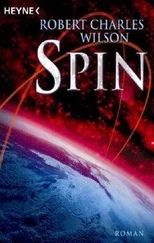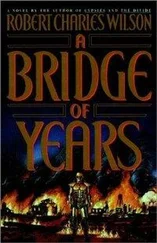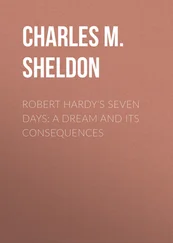Time was passing differently outside the barrier.
Or, to turn the equation around, time on Earth was passing more slowly than in the universe at large.
"You understand what that means?" Jason demanded. "Before, it looked like we were in some kind of electromagnetic cage that was regulating the energy that reaches the surface of the Earth. And that's true. But it's really only a side effect, a small part of a much bigger picture."
"Side effect of what?"
"Of what they're calling a temporal gradient. You grasp the significance? For every second that passes on Earth, a whole lot more time passes outside the barrier."
"That doesn't make sense," I said immediately. "What the hell kind of physics would that involve?"
"People with a lot more experience than me are struggling with that question. But the idea of a time gradient has a certain explanatory power. If there's a time differential between us and the universe, ambient radiation reaching the surface of the Earth at any given moment—sunlight, X rays, cosmic radiation—would be speeded up proportionally. And a year's sunshine condensed into ten seconds would be instantly lethal. So the electromagnetic barrier around the Earth isn't concealing us, it's protecting us. It's screening out all that concentrated—and, I guess, blue-shifted—radiation."
"The fake sunlight," Diane said, getting it.
"Right. They gave us fake sunlight because the real thing would be deadly. Just enough of it, and appropriately distributed, to mimic the seasons, to make it possible to raise crops and drive the weather. The tides, our trajectory around the sun—mass, momentum, gravitation—all these things are being manipulated, not just to slow us down but to keep us alive while they do it."
"Managed" I said. "It's not an act of nature, then. It's engineering."
"I think we'd have to admit that," Jason said, "yes."
"This is being done to us."
"People are talking about a hypothetical controlling intelligence."
"But what's the purpose, what's it supposed to achieve?"
"I don't know. No one knows."
Diane stared at her brother across a gap of cold and motionless winter air. She hugged her parka and shivered. Not because of the temperature but because she had come to the fundamental question: "How much time, Jason? How much time is passing out there?"
Out there beyond the blankness of the sky.
Jason hesitated, visibly reluctant to answer her.
"A lot of time," he admitted.
"Just tell us," she said faintly.
"Well. There are all kinds of measures. But the last launch, what they did was bounce a calibration signal off the surface of the moon. The moon gets farther away from the Earth every year, did you know that? By some minuscule but measurable amount. If you measure that distance you have a kind of rough calendar, more accurate the more time has passed. Add that to other signifiers, like the motion of nearby stars—"
"How much time, Jason?"
"It's been five years and a couple of months since the October Event. Outside the barrier, that translates into a little over five hundred million years."
It was a breathtaking number.
I couldn't think of anything to say. Not a single word. I was rendered speechless. Thoughtless. At that moment there was no sound at all, nothing but the crisp emptiness of the night.
Then Diane, who had seen straight to the scary heart of the thing, said, "And how long do we have left?"
"I don't know that either. It depends. We're protected, to some degree, by the barrier, but how effective is that protection? But there are some unavoidable facts. The sun is mortal, like every other star. It burns hydrogen and it expands and gets hotter as it ages. The Earth exists in a sort of habitable zone in the solar system, and that zone is moving steadily outward. Like I said, we're protected, we're okay for the time being no matter what. But eventually the Earth will be inside the heliosphere of the sun. Swallowed up by it. Past a certain point there's simply no going back."
"How long, Jase?"
He gave her a pitying look. "Forty, maybe fifty years," he said. "Give or take."
4X109 A.D.
The pain was difficult to manage, even with the morphine Diane had purchased at ridiculous cost from a pharmacy in Padang. The fever was worse.
It wasn't continuous. It came in waves, clusters, bubbles of heat and noise bursting unexpectedly in my head. It made my body capricious, unpredictable. One night I groped for a nonexistent glass of water and smashed a bedside lamp, waking the couple in the next room.
Come morning, temporarily lucid again, I couldn't remember the incident. But I saw the congealed blood on my knuckles and I overhead Diane paying off the angry concierge.
"Did I really do that?" I asked her.
"Afraid so."
She sat in a wicker chair next to the bed. She had ordered up room service, scrambled eggs and orange juice, so I guessed it was morning. The sky beyond the gauzy drapes was blue. The balcony door was open, admitting wafts of pleasantly warm air and the smell of the ocean. "I'm sorry," I said.
"You were out of your mind. I'd tell you to forget about it. Except you obviously have." She put a soothing hand on my forehead. "And it's not over yet, I'm afraid."
"How long—?"
"It's been a week."
"Only a week?"
"Only."
I wasn't even halfway through the ordeal.
* * * * *
But the lucid intervals were useful for writing.
Graphomania was one of the several side effects of the drug. Diane, when she was undergoing the same ordeal, once wrote the phrase Am I not my brother's keeper in hundreds of nearly identical repetitions over fourteen sheets of foolscap. My own graphomania was at least a little more coherent. I stacked up handwritten pages on the bedside table while I waited for the fever to launch a renewed offensive, rereading what I'd written in an attempt to fix it in my mind.
Diane spent the day out of the hotel. When she came back I asked her where she'd been.
"Making connections," she told me. She said she'd contacted a transit broker, a Minang man named Jala whose import-export business served as cover for his more lucrative emigration brokerage. Everybody on the docks knew Jala, she said. She was bidding for berths against a bunch of crazy-utopian kibbutzim, so it wasn't a done deal, but she was cautiously optimistic.
"Be careful," I said. "There might still be people looking for us."
"Not as far as I can tell, but…" She shrugged. She glanced at the notebook in my hand. "Writing again?"
"It takes my mind off the pain."
"You can hold the pen okay?"
"It's like terminal arthritis, but I can deal with it." So far, I thought. "The distraction is worth the discomfort."
But it wasn't just that, of course. Nor was it simply graphomania. The writing was a way to externalize what felt threatened.
"It's really very well done," Diane said.
I looked at her, horrified. "You read it?"
"You asked me to. You begged me to, Tyler."
"Was I delirious?"
"Apparently… though you seemed fairly rational at the time."
"I wasn't writing with an audience in mind." And I was shocked that I had forgotten showing it to her. How much else might already have slipped away?
"I won't look at it again, then. But what you wrote—" She cocked her head. "I'm amazed and flattered you felt so strongly about me, way back then."
"It could hardly come as a surprise."
"More than you might think. But it's a paradox, Tyler. The girl on the page is indifferent, almost cruel."
"I never thought of you that way."
"It's not your opinion that worries me. It's mine."
I had been sitting up in bed, imagining this was an act of strength, evidence of my own stoicism. More likely it was evidence that the painkillers were temporarily in charge. I shivered. Shivering was the first sign of a resurgent fever. "You want to know when I fell in love with you? Maybe I should write about that. It's important. It was when I was ten—"
Читать дальше












